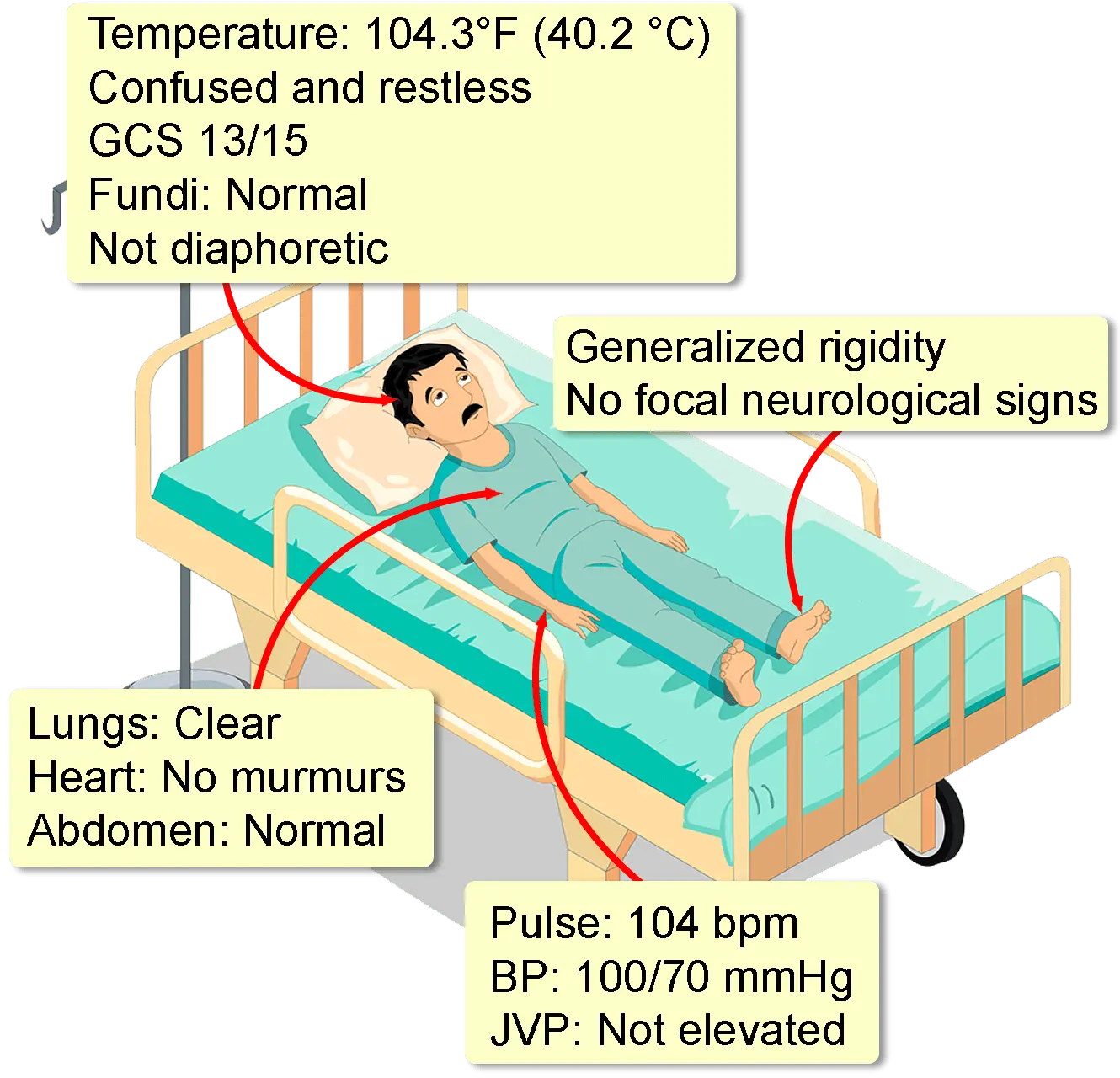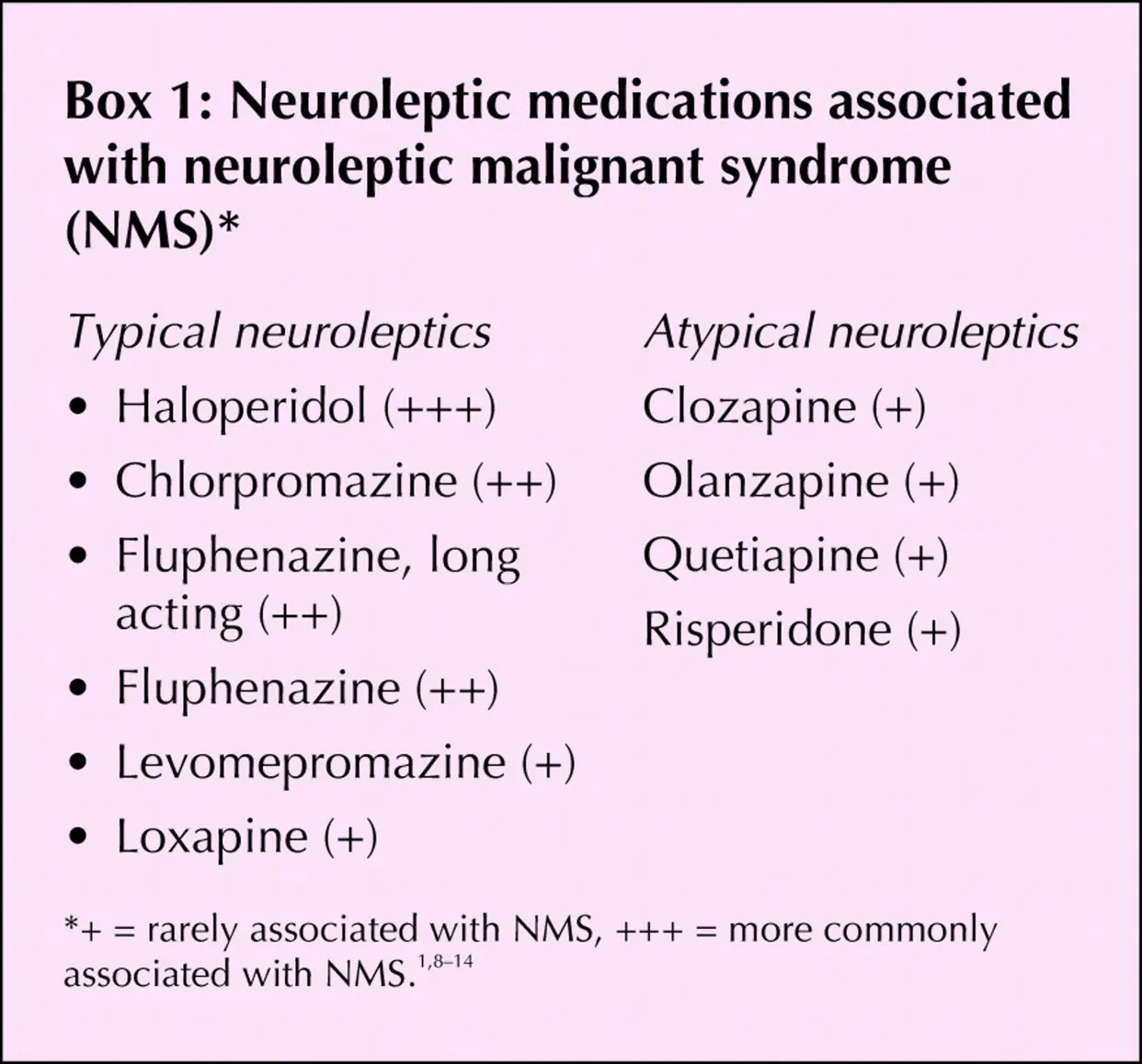Can Neuroleptic Malignant Syndrome be Cured?
Sometimes
Early recognition and intervention are crucial; discontinuation of the triggering medication can lead to recovery, but the syndrome can be life-threatening if not promptly addressed

What is Neuroleptic Malignant Syndrome?
Neuroleptic malignant syndrome is a potentially life-threatening reaction to certain medications used to treat psychiatric disorders. Symptoms include hyperthermia, altered mental status, and autonomic dysfunction. Treatment involves discontinuing the causative medication, supportive care, and, in severe cases, medical interventions to manage complications. Early recognition and prompt medical attention are crucial for a positive outcome.

Clinical Aspects

Characteristics
Rare, potentially life-threatening reaction to certain medications, particularly antipsychotic drugs

Symptoms
Hyperthermia (high fever), altered mental status, muscle rigidity

Diagnosis
Clinical evaluation, ruling out other causes

Prognosis
Variable, depends on the promptness of intervention

Complications
Organ failure, complications affecting multiple systems
Etiology and Treatment

Causes
Reaction to antipsychotic medications, genetic predisposition

Treatments
Immediate discontinuation of the triggering medication, supportive care, cooling measures, medications to control symptoms

Prevention
Immediate discontinuation of the triggering medication, supportive care, cooling measures, medications to control symptoms
Public Health and Patient Perspectives

Epidemiology
Rare but potentially life-threatening reaction to antipsychotic medications

Patient Perspectives
Immediate discontinuation of antipsychotic medications, supportive care
As always, consult with healthcare professionals for personalized advice and care.
Share: